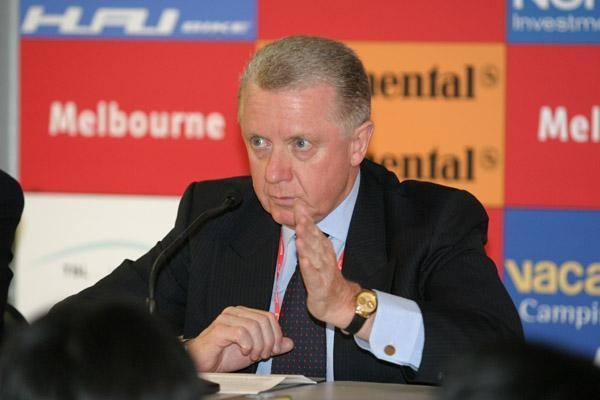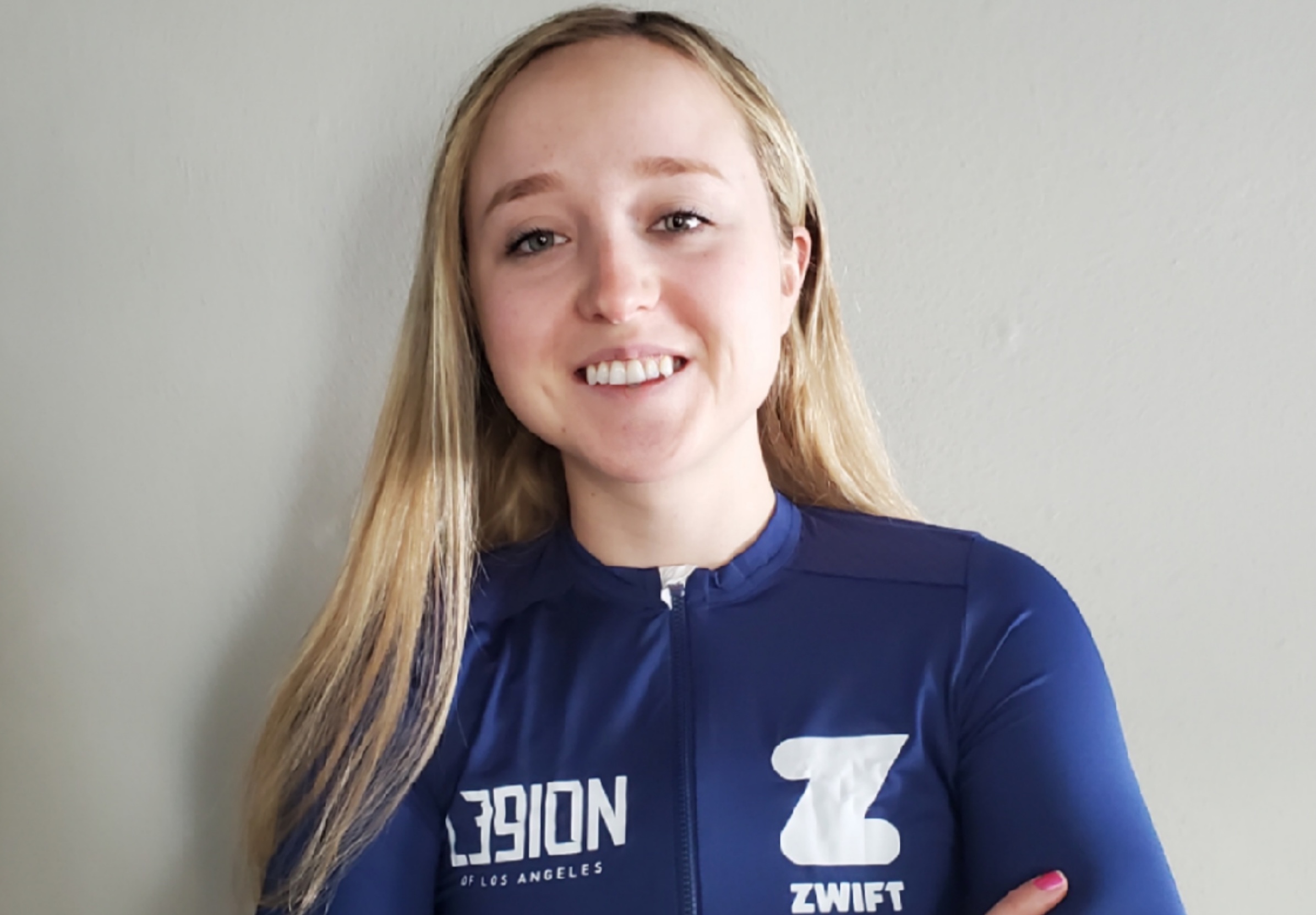From Festina to the biological passport: a retrospective
A look at the evolution of anti-doping efforts
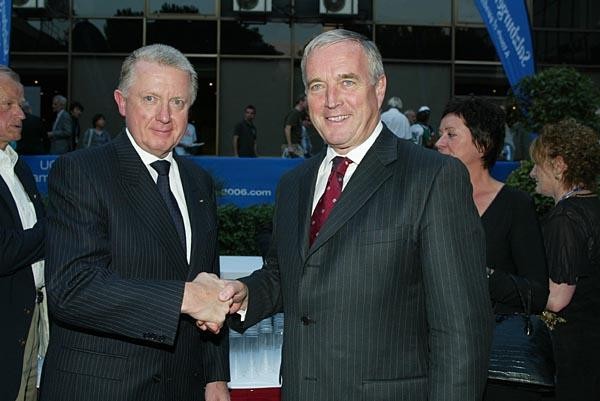
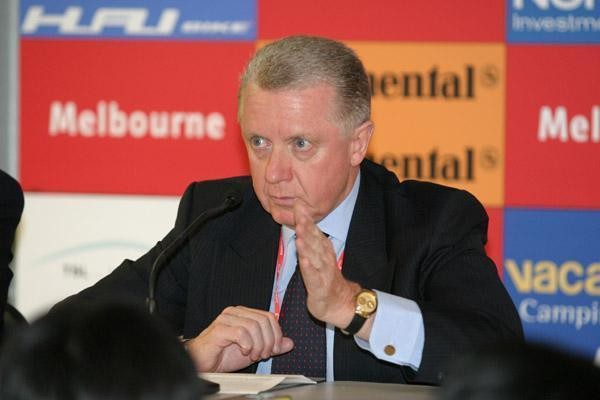
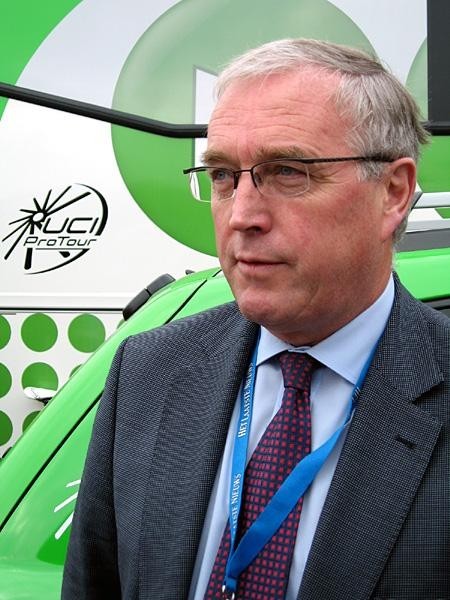
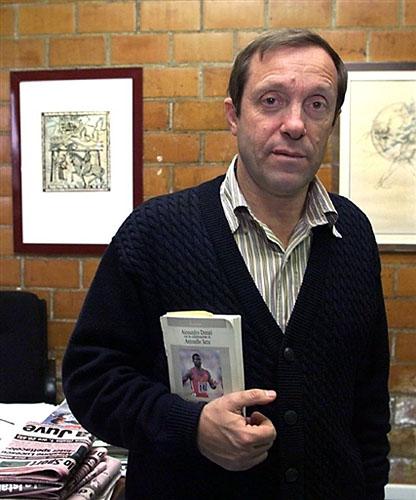

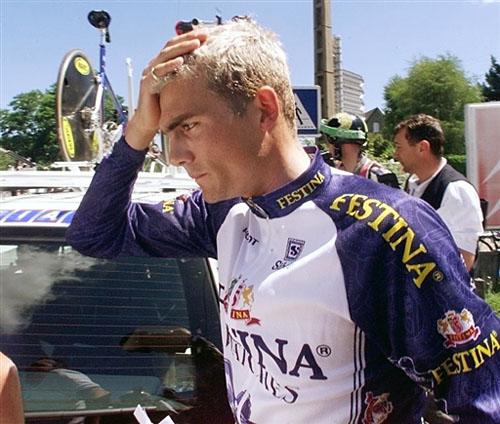
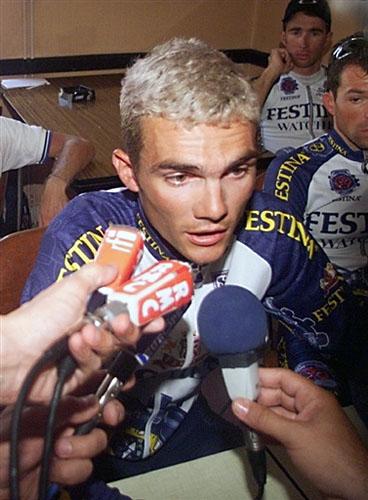
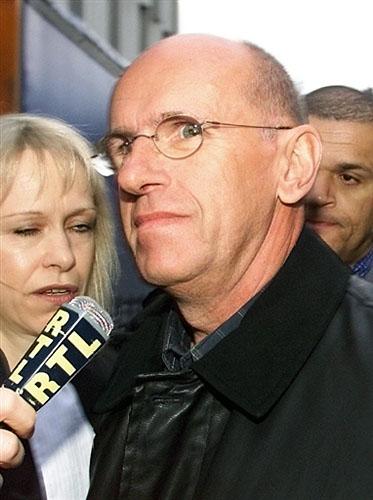
It's all about blood now. One positive linked to the biological passport keeps following another and it's not just small fry in the net: a former world champion and a Giro winner isn't bad going. The rider who finishes fourth in the Tour, Bradley Wiggins, puts his blood level data up on-line for all to look at so we can be sure he's not up to anything.
It's all so normal but once, blood was controversial. It's 12-and-a-half years since the then-UCI head Hein Verbruggen told me about a radical step in any sport: random blood testing with a limit of 50 per cent for haematocrit. It was a long, discursive interview, and the extracts published in the magazine I worked for then, Cycle Sport, make fascinating, if depressing reading today.
There was a sombre background, although nothing compared to the current context. By the winter of 1996-7, it was becoming apparent that EPO was being abused in professional cycling but no one had absolute proof of the extent. The Donati report, researched by Italy's leading anti-doping scientist earlier in the decade, had been leaked to a news magazine and outlined how EPO use was widespread in that country.
L'Equipe had run a series of revelations which now look routine but were explosive back then: riders claiming that they could not compete with rivals who were abusing EPO, doctors alleging that everyone used the blood booster.
The relevant authorities...
Verbruggen sat down with me that day with an agenda: the idea of random blood tests needed to be explained to professional cyclists, who were largely against it, and Cycle Sport at the time had a large readership among English-speaking pros. Throughout the interview he was adamant that the 50 per cent haematocrit limit was nothing to do with anti-doping, but a health check in the same way that a paint factory might take a blood sample from an employee to check for lead. Indeed, haematocrit checks might well mark a starting point in which anti-doping might move in an entirely different direction, he said.
"The whole doping fight is pretty ineffective and it's also unsatisfactory. Imagine that in future there's more of a move towards health controls, concentrating not only on doping but also on the health aspect. If there are certain products that enhance performance when taken in large quantities which are also dangerous to health, why not prescribe certain limits, check the blood and the urine and say that as long as you stay within determined limits where there is no risk to health, that's fine by us?"
The latest race content, interviews, features, reviews and expert buying guides, direct to your inbox!
I asked the obvious question: if you do this, isn't there a risk of condoning doping, which could still be dangerous? To which Verbruggen replied: "we already permit certain levels of caffeine and testosterone and a certain haematocrit level."
Verbruggen added, "concentrating on punishment does not solve the doping problem... The fight against doping simply by controlling and punishing doesn't work. The cheats stay ahead."
The proof of the pudding - based on proof
If one thing emerged from 12 years of drug scandals, it is that the haematocrit level was seen as an acceptable moral threshold by cyclists who used EPO. The almost total uselessness of the 50 per cent haematocrit limit as a measure for preventing EPO use became clear a year later when the Festina scandal broke and it has been made obvious ever since. Riders using EPO viewed 50 per cent as a target to aim for, and even as a moral line: if you weren't at 50 per cent you weren't doping.
But looking at the biological passport positives in recent weeks, you realise: it can't have been deliberate, but the blood tests acted as a Trojan horse. Over the years, they have become more and more finely tuned, and have been used to compile the 'red list' of suspect pros who were targeted for special attention: Tyler Hamilton was one of the first to be caught in this way. We probably would not now have the blood passport if the UCI hadn't managed to get the principle established that they could take blood samples from professional cyclists pretty much as and when they wanted.
What stands out is Verbruggen's philosophy, in view of the path events have taken in the last 12 years. I asked at the time: 'should the Donati report be investigated by the UCI?'
The reply? "[This is] not our task... an internal thing for the Italians." Verbruggen hinted that it boiled down to a feud between Donati (pictured below) and a fellow scientist since linked with EPO administration, Francesco Conconi.
He swatted away the allegations of Gilles Delion that doping was widespread as conjecture ('If you don't know, shut up'). A year later, the Festina scandal proved that Donati and L'Equipe's interviewees Delion and Nicolas Aubier were dead right. Are blood tests the future for fighting doping? "Not according to our experts, no." Good job they got some new experts.
A simple equation
At the time, I remember being disconcerted by Verbruggen's approach to anti-doping. It was simple for me: EPO = doping = against the rules = wrong. The UCI chief saw it thus: "You can have long intellectual discussions about why you have to forbid EPO but accept riders training at altitude... EPO works, so what we are doing is saying, 'OK, you get the same effect if you go to the mountains or into an oxygen chamber'."
I didn't quite get this so I asked him to clarify by asking, 'the essence of the argument is that there's no difference morally between injecting EPO and altitude training?' "You must agree because you said you want everyone to be on an equal footing," replied Verbruggen. I was puzzled by the response and it seems totally incongruous now.
The UCI has always worked in mysterious ways. It's never been quite clear how you get to be part of it. It's not run in any democratic, accountable way that has been apparent to me. So Pat MacQuaid was re-elected unopposed as its head? And just what say did you, I, or any other cyclist have in that. It's never been clear quite how the decision to drop the kilometre time trial from the Olympic Games was arrived at or who actually made it.
The whole question of the ProTour and its legitimacy is intriguing: what happened was that the governing body seemed wilfully to put itself into a conflict with the biggest race organiser in the sport. Similarly the UCI's rocky relationship with WADA has always been belied belief. It should be a no-brainer: you have a body which oversees anti-doping worldwide, you have a sport with a doping problem, so you work with WADA to clean up your sport, even if their head honcho says a bit too much for your liking occasionally. You don't sue them.
Going back to 1997, imagine if the response to Donati and the whistleblowing in L'Equipe had been, 'this is extremely worrying, we will investigate fully via an outside agency and we will publish the findings within three months.' And imagine if that had happened? Just perhaps, the sport might not have had to wait until Festina to find out what was really going on behind all those closed hotel room doors.
Can time really heal all ills?
The last 11 years shows that the only thing that has worked against doping is controlling and punishing: the controls have become more specific and the net narrower. The UCI deserves its share of credit for showing leadership among sports bodies. It was the first to bring in the urine test for EPO, accepted the principle of retrospective testing, brought in the red list, tested for homologous blood doping and have pushed ahead with the passport, clearly a major legal exercise.
Critically, they now have brought in outsiders such as Anne Gripper, Michael Ashenden - but what a shame Donati was marginalised, although he is now hailed at conferences such as Play the Game.
But until the last couple of years, the UCI tended to be reactive, with the pace in anti-doping set by the European police. The French cops made the breakthrough in 1998 and investigations in Italy, Belgium and Spain pushed things forward. Cycling has never enjoyed their interventions, but the inquiries kept forcing the sport to face the issue. I'd say the UCI did not truly manage that until the annus terribilis of 2006 - Puerto and Landis - made it clear the sport was facing oblivion. Looking back at that interview in 1997, I can understand why.
